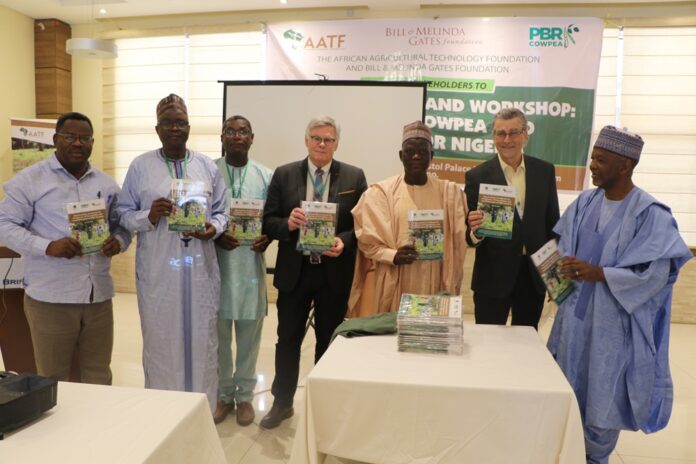In a concerted effort to bolster agricultural productivity across Africa, the African Agricultural Technology Foundation (AATF) has unveiled a comprehensive handbook designed to provide guidance to seed companies in field operations and the production of high-quality seeds.
This landmark initiative aims to equip seed producers with the necessary knowledge and best practices to optimize seed production processes, ultimately enhancing agricultural yields and food security on the continent.
The handbook, titled “Stewardship Handbook for producers of Foundation and Certified Seeds of PBR Cowpea,” represents a culmination of AATF’s commitment to promoting sustainable agricultural development through the adoption of innovative technologies and capacity-building initiatives.
Dr Danjuma Mahmoud, Kano State Commissioner for Agriculture unveiled the handbook in Kano during the Annual Project Review and Workshop for the PBR Cowpea Seed Support for Nigeria.
Dr Mahmoud who was represented by Alhaji Sadi Ibrahim, Permanent Secretary, Kano State Ministry of Agriculture noted that the handbook was tailored to address the unique challenges faced by seed companies operating in diverse agro-ecological contexts across Africa.
He said that advancing agricultural technologies that tackles the emerging concern over climate change requires collaborations, partnership and documented knowledge to guide operators at all levels of the delivery chain, hence the relevance of the handbook produced by AATF.
In a remark, Dr Emmanuel Okogbenin, AATF Director of Program Development and Commercialization said that the AATF PBR Cowpea Seed Support project aims to drive the supply chain of cowpea in Nigeria and to make it efficient and useful.
“The project will invariably contribute to strengthening food and nutrition security in the country,” he said. He acknowledges the contributions of various partners including the Bill and Melinda Gates Foundation to the successes recorded by the project in the last planting season adding that with a well-coordinated partnership, farmers on the African continent would soon overcome the challenges facing agricultural productivity.
A representative of BMGF, Lawrence Kent said that the Seed Support project was designed to improve seed production and that seed companies have vital roles to play in ensuring that the project attained its objective.
“The ultimate goal of the support is to improve farmers productivity and livelihood,” he added.
Dr Francis Onyekachi, AATF’ Stewardship Manager said that the primary objectives of the handbook was to streamline field operations throughout the seed production cycle, from land preparation and planting to crop maintenance, harvesting, and post-harvest handling.
“By providing step-by-step guidelines and best practices for each stage of the production process, seed companies can optimize resource utilization, minimize production risks, and ensure the production of genetically pure and high-performing seeds,” he said.
The handbook emphasizes the importance of adherence to quality assurance protocols and regulatory standards to uphold seed quality and integrity. With a focus on maintaining genetic purity, disease resistance, and seed viability, seed producers are empowered to meet the stringent quality requirements of farmers, regulatory agencies, and international markets.
























